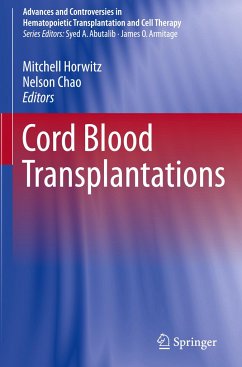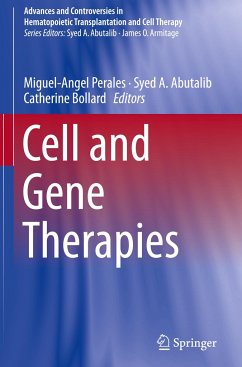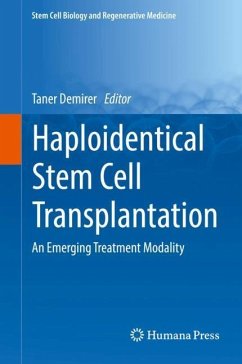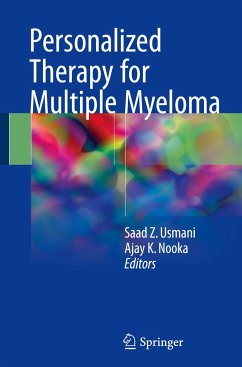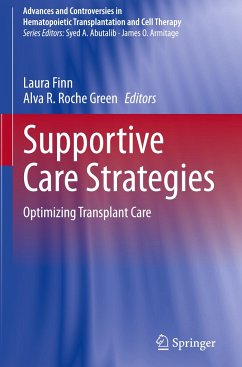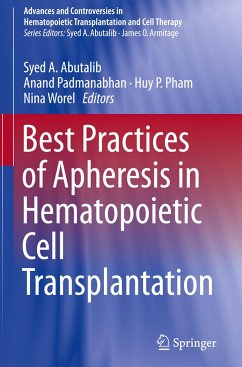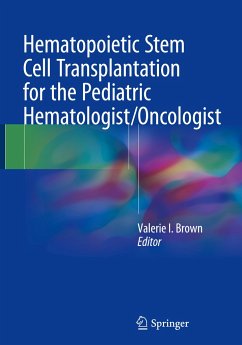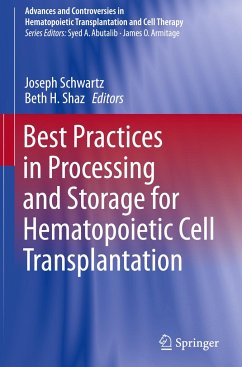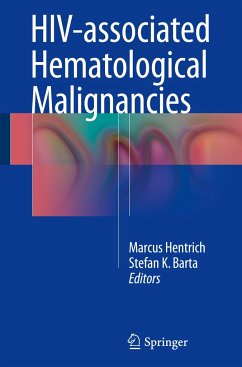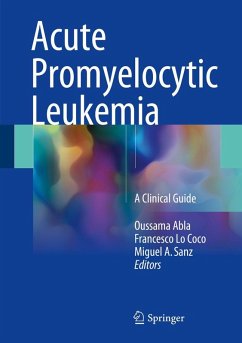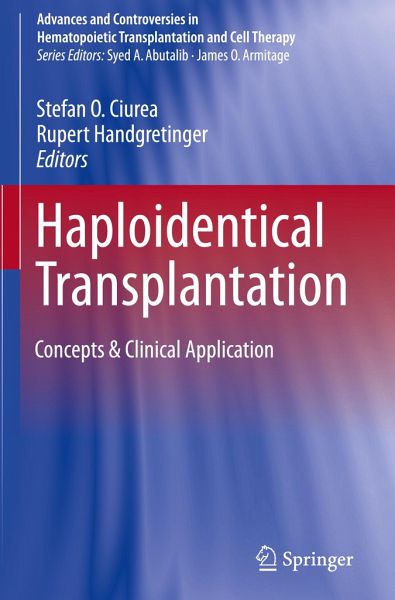
Haploidentical Transplantation
Concepts & Clinical Application
Herausgegeben: Ciurea, Stefan O.; Handgretinger, Rupert

PAYBACK Punkte
46 °P sammeln!
In this book, world-renowned experts in the field express well-reasoned opinions on a range of issues and controversies relating to haploidentical transplantation with the aim of providing practicing hematologists with clinically relevant and readily applicable information. Among the areas covered are graft manipulation and methods to control T-cell alloreactivity, the nature of the ideal graft and donor, haploidentical transplantation in pediatric and adult patients with malignant and nonmalignant diseases, immunologic reconstitution following transplantation, complications, and the preventio...
In this book, world-renowned experts in the field express well-reasoned opinions on a range of issues and controversies relating to haploidentical transplantation with the aim of providing practicing hematologists with clinically relevant and readily applicable information. Among the areas covered are graft manipulation and methods to control T-cell alloreactivity, the nature of the ideal graft and donor, haploidentical transplantation in pediatric and adult patients with malignant and nonmalignant diseases, immunologic reconstitution following transplantation, complications, and the prevention and treatment of relapse post transplantation. Attention is drawn to the implications of high-impact clinical trials whenever such trials are available. The readily intelligible text is complemented by numerous helpful tables, algorithms, and figures. The book will provide practical support for hematologists and transplant physicians as they attempt to provide optimal care in this excitingbut increasingly complex medical specialty.



